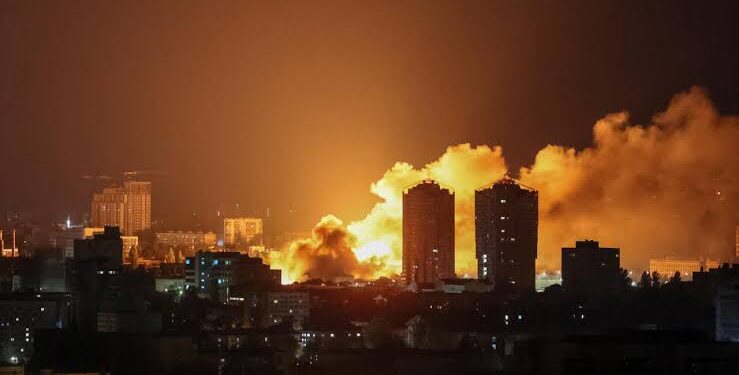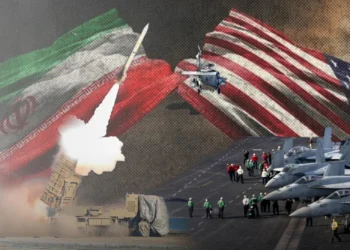Kyiv, Ukraine – July 19, 2025 – At least three people have been killed and several others injured as Russia unleashed another widespread air assault on Ukraine overnight, targeting 10 regions and causing significant damage to residential and critical infrastructure, Ukrainian officials reported.
The barrage, which involved more than 340 explosive and dummy drones along with 35 cruise and ballistic missiles, struck multiple cities, including Odesa, Sumy, and the eastern Dnipropetrovsk region, according to Ukraine’s military. While approximately 90% of the projectiles were intercepted, suppressed electronically, or lost, over 30 penetrated Ukraine’s air defenses, igniting fires and wreaking havoc across the country.
In the southern port city of Odesa, a residential block was hit, sparking a fire on its upper floors. Emergency services reported that a woman succumbed to injuries sustained in the blaze despite being rescued from a burning apartment. In Dnipropetrovsk, regional governor Sergiy Lysak confirmed two fatalities. The north-eastern city of Sumy also faced significant disruption, with critical infrastructure damaged, leaving thousands of families without power. In Shostka, a town less than 50 kilometers from the Russian border, a targeted strike caused a fierce fire, though officials did not specify the exact target. Unverified footage circulating online showed thick smoke and flames engulfing structures in the area.
Ukrainian President Volodymyr Zelensky condemned the attacks, emphasizing the urgent need for enhanced air defenses. “Russia is showing it has no intention of ending the war,” Zelensky said in a statement, calling for increased support from allies to bolster Ukraine’s defenses, including the production of interceptor drones domestically. He noted that the strikes underscored Moscow’s ongoing aggression, particularly following recent diplomatic setbacks.
The assault comes amid heightened tensions, with Russian forces intensifying their bombing campaign in recent weeks. On the front lines, Russian troops continue their push toward Pokrovsk in the Donetsk region, a key logistical hub. Ukraine’s commander-in-chief, Oleksandr Syrskyi, acknowledged mounting pressure but described the defense as “steadfast,” claiming that a Russian sabotage and reconnaissance group had been neutralized.
The timing of the attacks follows a July 4 phone call between Russian President Vladimir Putin and U.S. President Donald Trump, during which no progress was made toward a ceasefire. Ukrainian officials, including Zelensky, have expressed frustration over the lack of diplomatic breakthroughs, with some accusing Russia of exploiting perceived hesitations in Western support. The Trump administration recently moved to resume weapons supplies to Ukraine, though critical systems like Patriot air defenses will reportedly be funded by other NATO allies.
The international community has responded with concern. Ukrainian Foreign Minister Andrii Sybiha called for a robust global response, describing Russia’s actions as systematic attacks on civilians and infrastructure. “The world must respond clearly and take concrete steps,” he wrote on social media. Meanwhile, NATO chief Mark Rutte confirmed that the U.S. would supply Ukraine with necessary equipment through NATO channels, signaling continued alliance support.
The latest wave of attacks adds to Ukraine’s mounting toll. In June, the United Nations reported 232 civilian deaths and 1,343 injuries, marking the highest monthly civilian casualty count in three years. As Russia’s aerial campaign escalates, hopes for a near-term resolution to the conflict, now in its fourth year since the full-scale invasion began in February 2022, appear increasingly dim.
Residents in affected areas are bracing for further strikes, with emergency crews and volunteers working tirelessly to extinguish fires and assist survivors. In Kyiv, the capital, authorities reported damage to residential buildings, schools, and infrastructure, underscoring the war’s devastating impact on civilian life.
As the conflict grinds on, Zelensky reiterated his call for unity and resilience. “We stand strong. We help one another. And we will endure,” he said, echoing sentiments expressed by local leaders in hard-hit cities like Kharkiv and Odesa.




































